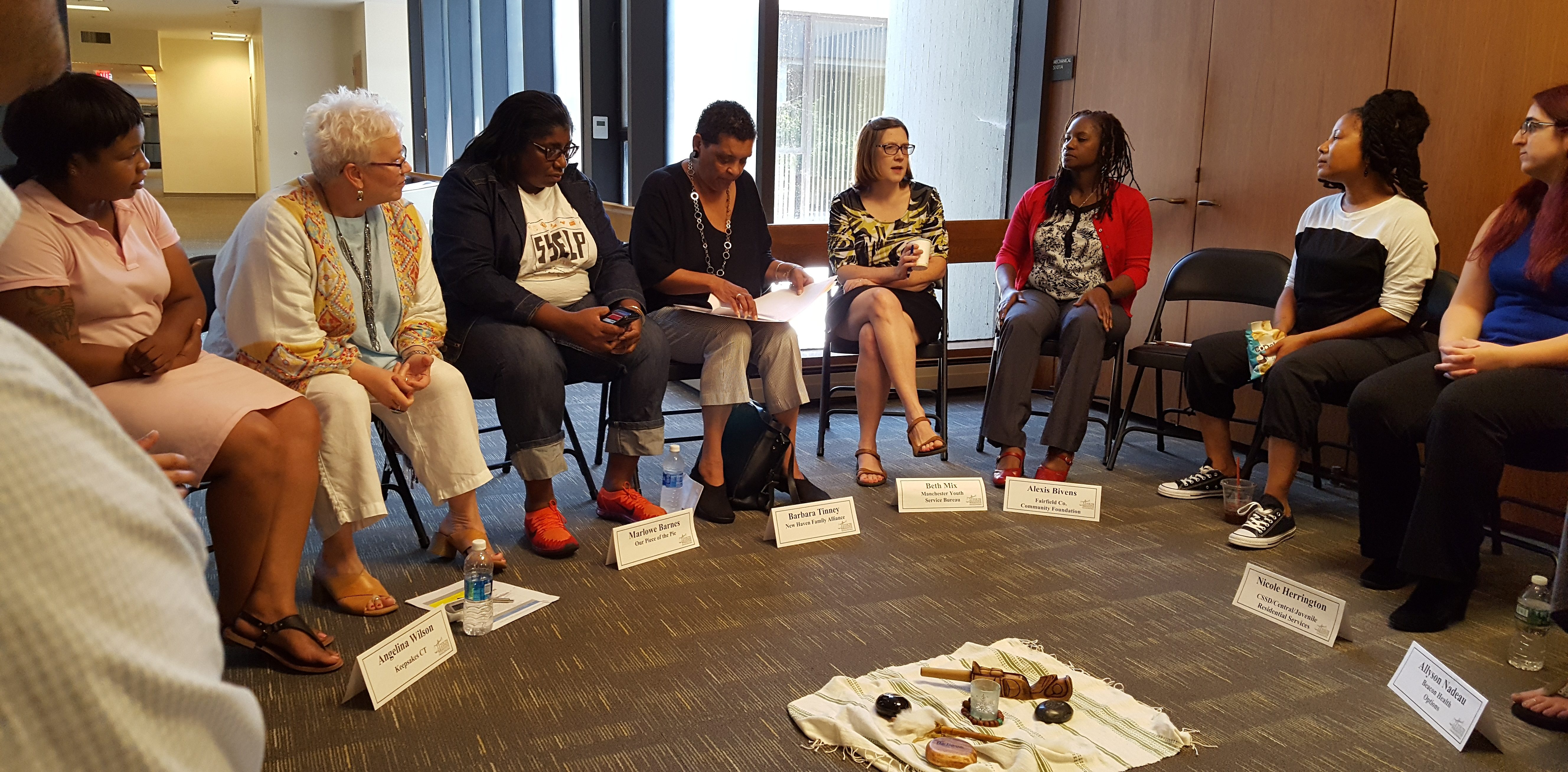
Program Goals and Design

The goals of the Transforming Youth Justice include:
- To build the capacity of present and future leaders as agents of change, transforming youth justice from a community response paradigm.
- To advance leadership development skills and knowledge of best practices in reform, organizational and community change, and self-awareness.
- To be a resource to the organizations, communities, and systems serving youth through a network of dedicated leaders.
Each year 15 individuals are recruited to participate in the 9-month Leadership Development Program. Candidates for the program are those involved in the youth justice field and employed as mid-level managers in law enforcement/policing, state and local government, public and private agencies, non-profit service providers, and includes broader community members such as middle and high school educators, policymakers, community leaders, faith leaders, parents, and advocates.
Participation in the Transforming Youth Justice increases visibility and links individuals with a wide range of organizations, and regional/state networks to state and national level juvenile justice system changes. The program creates safe spaces for learning and critical reflection on a developmental approach to juvenile justice (e.g. adolescent brain research), the use of best practices (family outreach and active engagement), and tools for measuring results (Results-Based Accountability and data-driven decisions).
The curriculum for the Transforming Youth Justice is intended to ensure there is a current and future workforce of youth justice leaders who are committed, competent and passionate about making the system work effectively, and support positive change for all young people in every community.
Three components emphasized for the core curriculum are leadership development skills, youth justice reforms, and best practices in core competencies including empirical research, data utilization, collaboration, and presentation skills. Session topics include Connecticut’s juvenile justice system, adolescent development and trauma, getting results (data and outcomes), advocacy, legislative reform initiatives, and family and community engagement. Cohort leaders explore current youth justice systems operating within the state and identify collaborative leadership opportunities to advance reform efforts
A Capstone proposal turns dialogue into action on critical youth justice issues at the local, regional and/or statewide level. They are developed through a guided process utilizing collaborative leadership skills and The Five Practices of Exemplary Leadership®, while exploring relevant youth justice topics, preparing to deliver presentations on best practices, and reflecting on key learnings. Graduates become part of a statewide alumni fellows’ network to keep momentum going and facilitate leadership and best practices in the fields of community youth development and juvenile justice across multiple systems to better serve all of Connecticut’s youth and families.